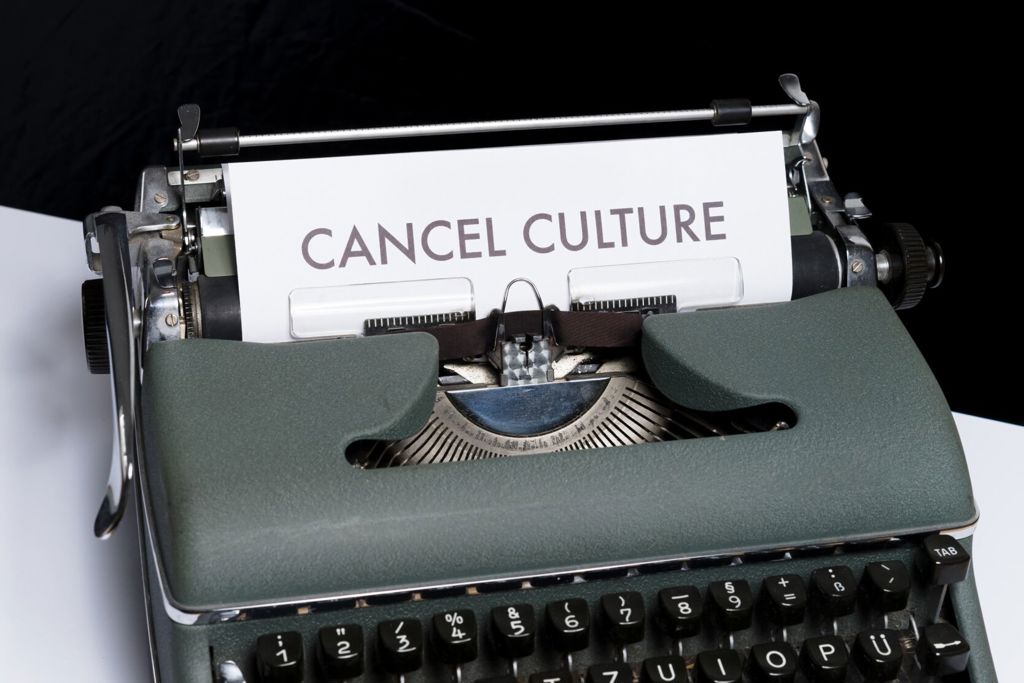Cancel culture is a destructive movement that often turns discussion online into a hivemind. It should be replaced by a philosophy that favours forgiveness and, in many cases, second chances.
For those unacquainted with the term, “cancel culture” refers to the shared mentality amongst many Internet users that celebrities and organizations should have their notable status removed for certain transgressions, whether that be a statement, action or implication of some sort. To have a career “cancelled” is exactly what it sounds like: the Internet makes a joint effort to shut down a celebrity’s status by collectively turning against them.
There have been attempts to disprove the existence of cancel culture, with some believing it to be an “accountability measure.” This asserts that cancel culture is a way of holding celebrities accountable for their behaviour and the subject should use it as an opportunity to apologize and own up to their actions.
While this argument isn’t completely wrong, its oversimplification of cancel culture misses the mark in a few key ways.
Once a celebrity has been cancelled, it’s often too late to apologise in any way that won’t be ruthlessly mocked and criticised. Cancellation is the active attempt to vilify a person, and apologising often won’t stop this.
Take the classic cliché of the YouTuber apology video. More often than not, when a YouTuber apologizes for their actions, their apology doesn’t actually make a difference when it comes to their public image. Instead, their video is placed under an ideological microscope and over-analyzed in an attempt to find anything wrong with the video.
Worse yet, sometimes an apology is considered “bad” solely because of the action that preceded it.
Take this list of the “13 worst YouTube apology videos ever,” and notice how it includes all sorts of different people, apology formats and wording. Interestingly, though, many of the critiques on the list come down to ‘well, you should have seen this coming.’
MatPat is a YouTuber featured on the list, and the apparent reason his apology is one of YouTube’s worst is because of his initial mistake. “At least he addressed it but the damage has been done,” reads the article. “He should have known better.” PewDiePie and Tana Mongeau get similar treatment in the article.
The issue here is that this complaint fails to actually address the apology itself, still focussing entirely on the action that spurred the cancellation to begin with – yet still dubs the apology as one of YouTube’s worst without any legitimate critique on the video.
Those who engage in this mentality love to pretend that they know what an appropriate apology should look like. What they fail to recognize is that the format and wording of an apology is irrelevant if the preceding action is still considered offensive enough.
Another issue with cancel culture lies in the seemingly immediate belief that the accused is at fault without waiting for evidence or corroboration. False accusations can ruin lives and cancel culture only contributes to this possibility.
An excellent example of this is in the 2019 cancellation of Jared “ProJared” Knabenbauer, whose reputation was completely destroyed by child grooming and cheating allegations until he responded and cleared up the lies that had been set against him.
The truth is, there’s something fun about joining a mob and sharing a common enemy. Feeling like part of a group and jumping on the bandwagon can be exciting and motivating, but it’s not okay if it’s at the expense of another person, their career and their mental health.
There is certainly a place for accountability, and there always will be.
There are situations in which it’s entirely appropriate to lose respect for a person. When serious allegations have evidence and display an individual’s true intentions and behaviour, it’s entirely understandable to no longer wish to associate with them. Certain individuals who openly spew hate are also not worth providing the benefit of the doubt, such as Andrew Tate, who actively causes harm to society through his misogynistic influence on young men.
But cancelling someone purely because it’s what everyone else is doing without proper evidence to support allegations is destructive. It creates a hivemind excited to destroy an individual’s life and reputation, rather than encouraging critical thinking and empathy.
Accountability can be a difficult subject because of the variety of factors it involves, such as the seriousness of the allegations, the individual’s response and the situation’s context and evidence. Ultimately, it’s up to you who you choose to believe and who you give your respect to, – but mindlessly cancelling people because it’s the popular thing to do isn’t helpful or constructive in any way.
It’s time to replace cancel culture with an empathetic mindset that favours accountability over ignorant hatred.

